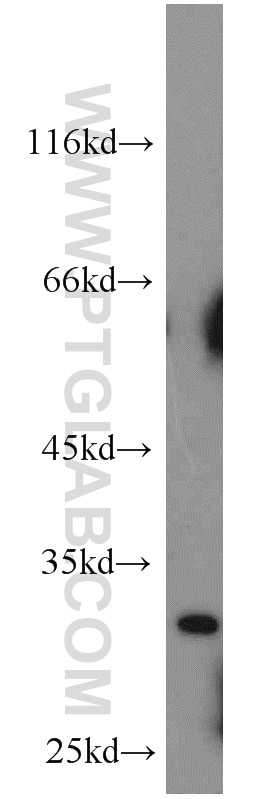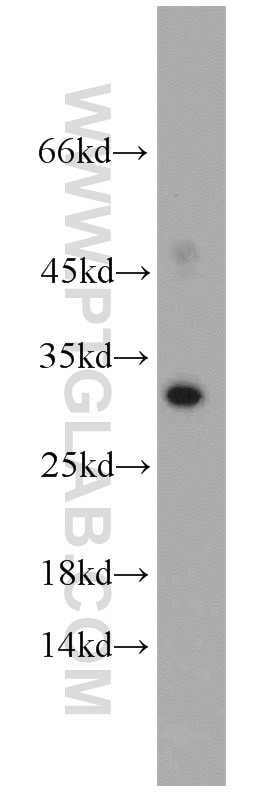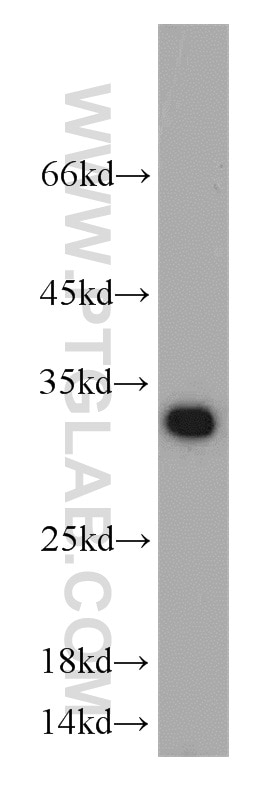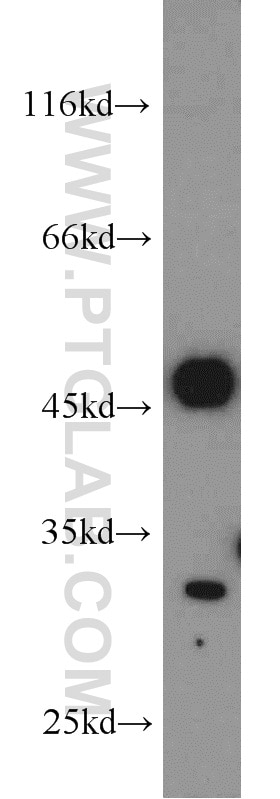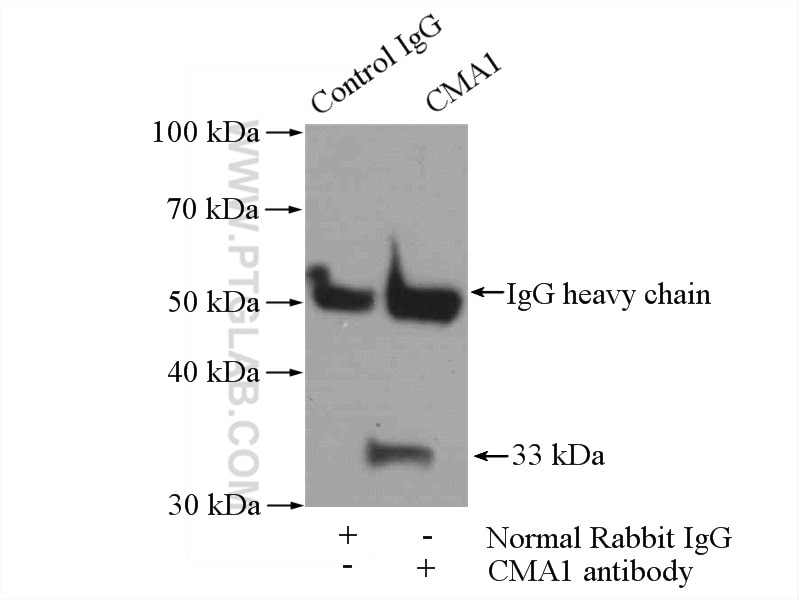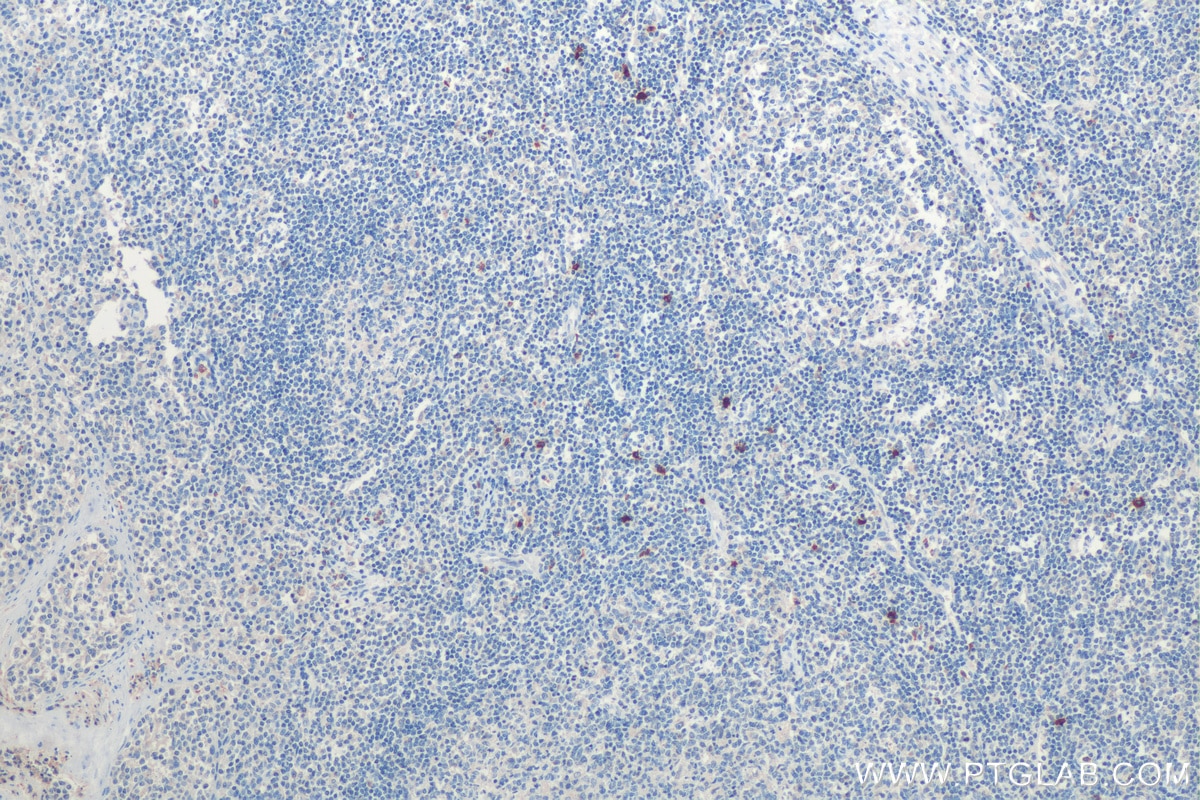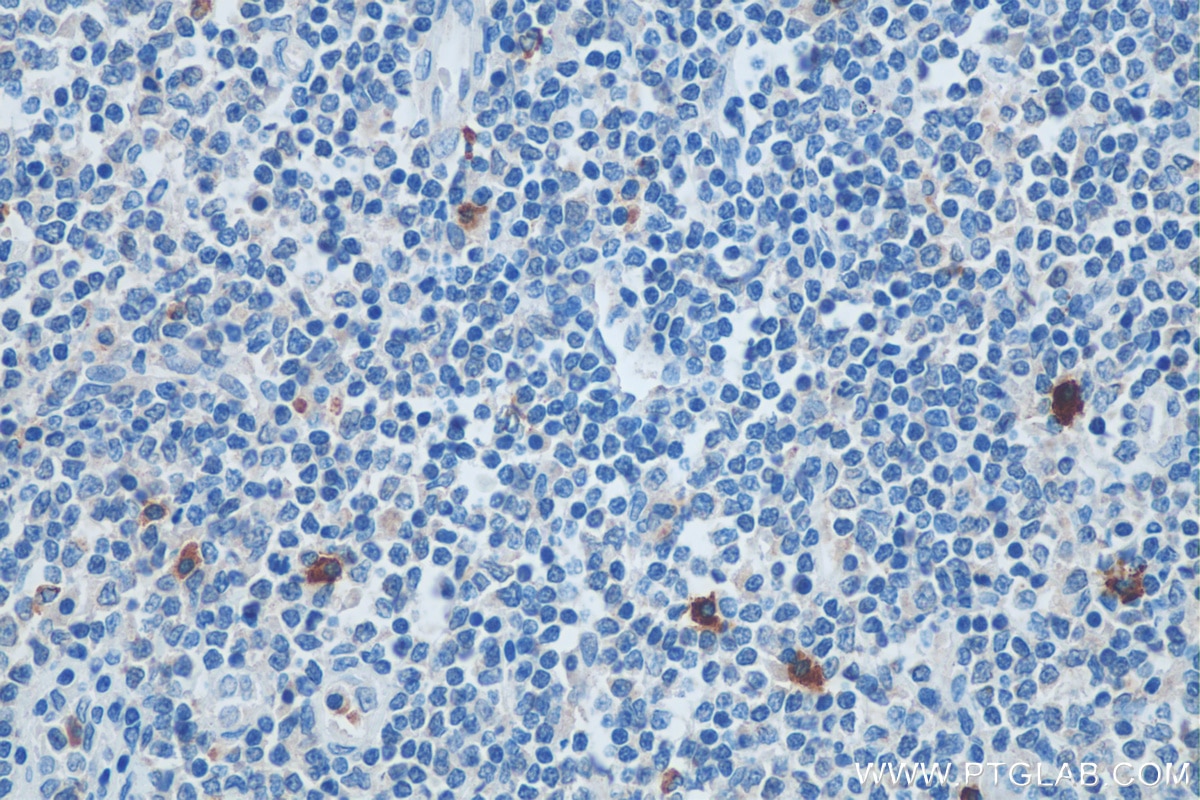Tested Applications
| Positive WB detected in | mouse heart tissue, human heart tissue, human placenta tissue, MCF-7 cells |
| Positive IP detected in | mouse heart tissue |
| Positive IHC detected in | human tonsillitis tissue Note: suggested antigen retrieval with TE buffer pH 9.0; (*) Alternatively, antigen retrieval may be performed with citrate buffer pH 6.0 |
Recommended dilution
| Application | Dilution |
|---|---|
| Western Blot (WB) | WB : 1:500-1:1000 |
| Immunoprecipitation (IP) | IP : 0.5-4.0 ug for 1.0-3.0 mg of total protein lysate |
| Immunohistochemistry (IHC) | IHC : 1:50-1:500 |
| It is recommended that this reagent should be titrated in each testing system to obtain optimal results. | |
| Sample-dependent, Check data in validation data gallery. | |
Published Applications
| KD/KO | See 1 publications below |
| WB | See 11 publications below |
| IF | See 4 publications below |
Product Information
18189-1-AP targets Mast Cell Chymase in WB, IF, IP, ELISA applications and shows reactivity with human, mouse, rat samples.
| Tested Reactivity | human, mouse, rat |
| Cited Reactivity | human, mouse, rat |
| Host / Isotype | Rabbit / IgG |
| Class | Polyclonal |
| Type | Antibody |
| Immunogen |
CatNo: Ag12909 Product name: Recombinant human CMA1 protein Source: e coli.-derived, PGEX-4T Tag: GST Domain: 1-247 aa of BC069370 Sequence: MLLLPLPLLLFLLCSRAEAGEIIGGTECKPHSRPYMAYLEIVTSNGPSKFCGGFLIRRNFVLTAAHCAGRSITVTLGAHNITEEEDTWQKLEVIKQFRHPKYNTSTLHHDIMLLKLKEKASLTLAVGTLPFPSQFNFVPPGRMCRVAGWGRTGVLKPGSDTLQEVKLRLMDPQACSHFRDFDHNLQLCVGNPRKTKSAFKGDSGGPLLCAGVAQGIVSYGRSDAKPPAVFTRISHYRPWINQILQAN Predict reactive species |
| Full Name | chymase 1, mast cell |
| Calculated Molecular Weight | 247 aa, 27 kDa |
| Observed Molecular Weight | 27-30 kDa |
| GenBank Accession Number | BC069370 |
| Gene Symbol | Mast Cell Chymase |
| Gene ID (NCBI) | 1215 |
| RRID | AB_2083611 |
| Conjugate | Unconjugated |
| Form | Liquid |
| Purification Method | Antigen affinity purification |
| UNIPROT ID | P23946 |
| Storage Buffer | PBS with 0.02% sodium azide and 50% glycerol, pH 7.3. |
| Storage Conditions | Store at -20°C. Stable for one year after shipment. Aliquoting is unnecessary for -20oC storage. 20ul sizes contain 0.1% BSA. |
Background Information
Mast Cell Chymase, also named as CYH, CYM and CMA1, belongs to the peptidase S1 family and Granzyme subfamily. It is the major secreted protease of mast cells with suspected roles in vasoactive peptide generation, extracellular matrix degradation, and regulation of gland secretion. CMA1 maybe a target for cardiovascular disease therapies.
Protocols
| Product Specific Protocols | |
|---|---|
| IHC protocol for Mast Cell Chymase antibody 18189-1-AP | Download protocol |
| IP protocol for Mast Cell Chymase antibody 18189-1-AP | Download protocol |
| WB protocol for Mast Cell Chymase antibody 18189-1-AP | Download protocol |
| Standard Protocols | |
|---|---|
| Click here to view our Standard Protocols |
Publications
| Species | Application | Title |
|---|---|---|
Proc Natl Acad Sci U S A Perinatal androgens organize sex differences in mast cells and attenuate anaphylaxis severity into adulthood. | ||
Arterioscler Thromb Vasc Biol Stabilization of Perivascular Mast Cells by Endothelial CNP (C-Type Natriuretic Peptide). | ||
Int J Mol Sci Stress and Nasal Allergy: Corticotropin-Releasing Hormone Stimulates Mast Cell Degranulation and Proliferation in Human Nasal Mucosa. | ||
Cell Cycle Overexpression of monocarboxylate anion transporter 1 and 4 in T24-induced cancer-associated fibroblasts regulates the progression of bladder cancer cells in a 3D microfluidic device. | ||
Sci Rep Chymase-producing cells of the innate immune system are required for decidual vascular remodeling and fetal growth. | ||
Reviews
The reviews below have been submitted by verified Proteintech customers who received an incentive for providing their feedback.
FH Reyes (Verified Customer) (02-14-2025) | MCC (in green) does not seem to have worked specifically on the epileptic human FFPE cortex. It is supposed to mark only mast cells, but it seems to have some puncta-like staining of the neurons (in red) too.
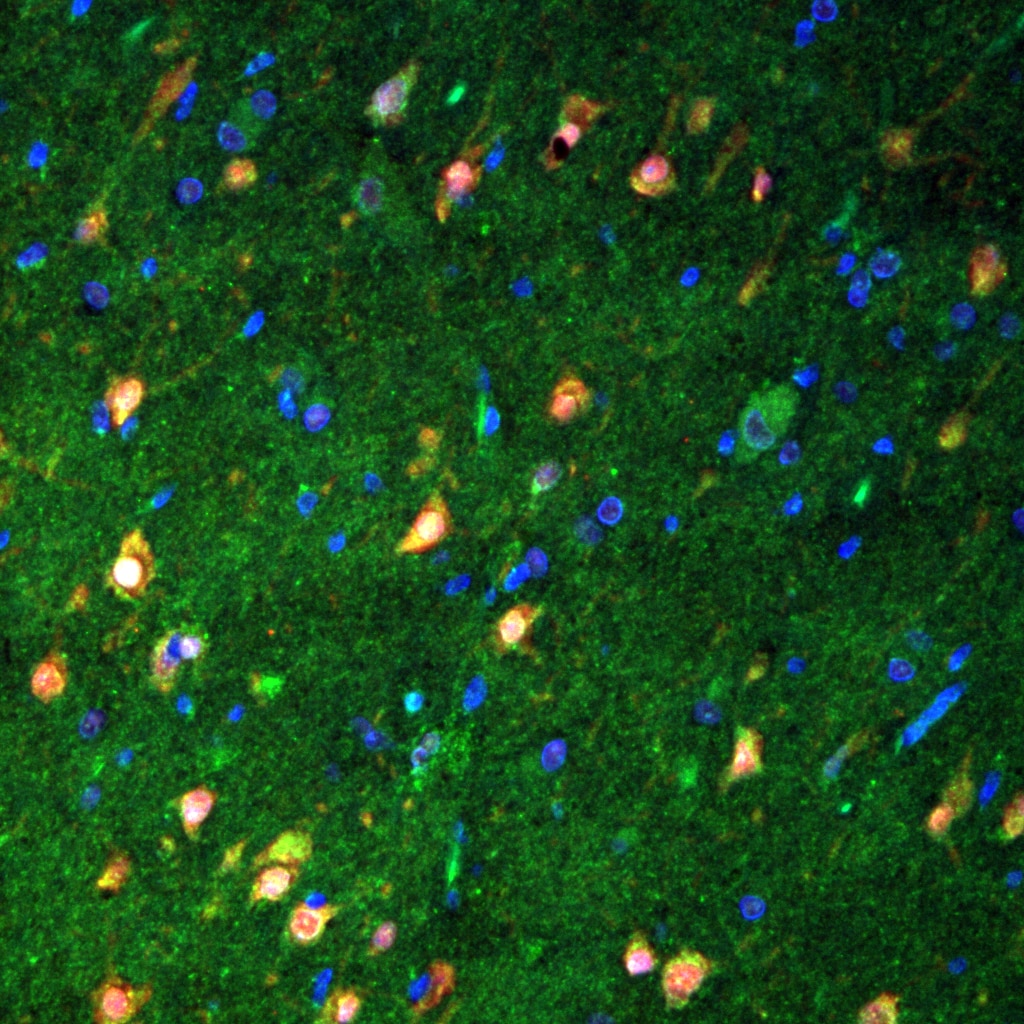 |

